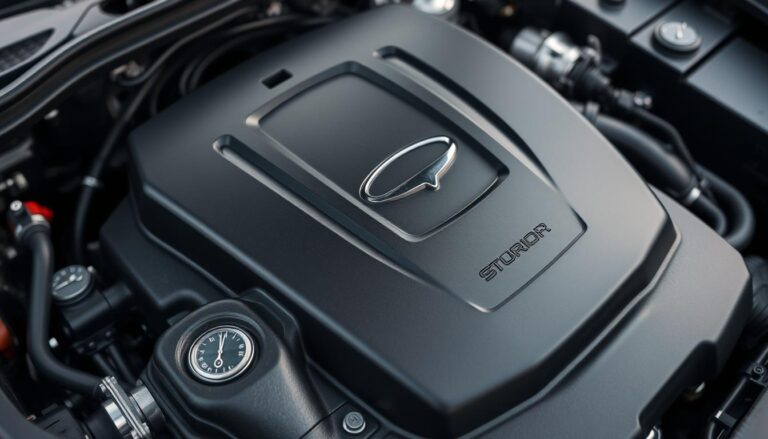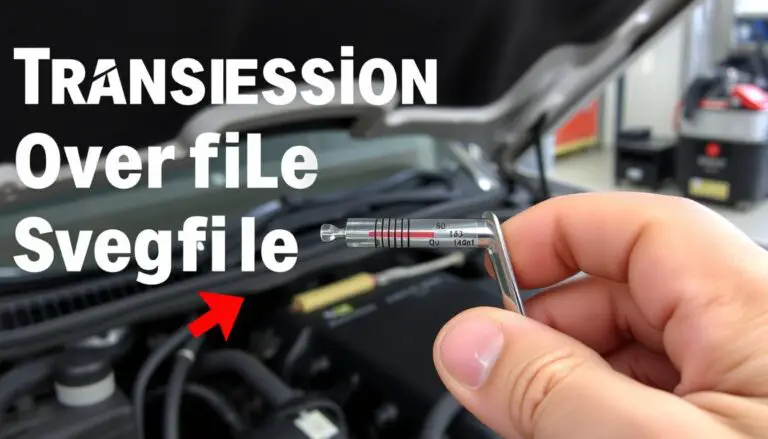Understanding how coolant affects AC performance can help you identify problems early, prevent costly repairs, and maintain optimal cooling efficiency. In this guide, we’ll explore the critical relationship between coolant and your air conditioning system, helping you stay cool when temperatures rise.
How Coolant Impacts Your AC System’s Performance
First, let’s clarify an important distinction: your vehicle has two separate cooling systems. The engine cooling system uses a water/antifreeze mixture, while your AC system uses refrigerant (often referred to as Freon, R-134a, or R-1234yf in newer vehicles). When we discuss coolant affecting AC in this article, we’re primarily referring to refrigerant.
Refrigerant is to your AC what blood is to the human body—it circulates through the system, carrying heat away from the cabin. Without the proper amount of refrigerant, your AC system simply cannot function effectively.
The Refrigerant Cycle: How Your AC Actually Cools
Your AC system operates on a continuous cycle of compression and expansion:
- The compressor pressurizes the refrigerant, turning it into a hot, high-pressure gas
- This gas flows to the condenser, where it releases heat and converts to a liquid
- The liquid refrigerant passes through an expansion valve, which reduces pressure
- The low-pressure refrigerant enters the evaporator, absorbing heat from the cabin air
- The refrigerant returns to the compressor as a gas, and the cycle continues
Each step in this process depends on having the correct amount of refrigerant. Too little or too much can disrupt the entire system’s efficiency.
Low vs. Optimal Coolant Levels: What’s the Difference?

When your AC system has the optimal amount of refrigerant, you’ll enjoy powerful cooling performance. The air from your vents will be cold, with strong airflow that quickly cools your vehicle’s interior. The system will cycle normally, and you’ll hear the compressor engaging and disengaging at regular intervals.
Signs of Low Refrigerant Levels
When refrigerant levels drop below optimal levels, several noticeable symptoms appear:
- Warm air from vents, especially at idle or low speeds
- Weak airflow that doesn’t seem to reach the back of the cabin
- AC compressor cycling on and off rapidly (short cycling)
- Unusual noises when the AC is running
- Longer cooling times to reach comfortable temperatures

Unlike engine coolant, which you can check and top off yourself, AC refrigerant requires special equipment to measure and recharge. This is why professional diagnosis is often necessary when AC performance declines.
5 Warning Signs of Improper Coolant Levels

Your AC system will give you clear signals when refrigerant levels aren’t right. Here are five key warning signs to watch for:
1. Ice Formation on AC Components
When refrigerant levels are low, pressure drops in the system, causing the evaporator to become too cold. This can lead to ice formation on AC components, including visible frost on AC lines or the compressor itself. If you notice ice buildup, turn off your AC immediately to prevent compressor damage.
2. Hissing or Bubbling Sounds
Unusual noises like hissing, bubbling, or gurgling often indicate a refrigerant leak. These sounds occur when refrigerant escapes through a small hole or crack in the system. The noise is most noticeable when the AC is running, especially during startup or shutdown.

3. Oil Spots or Residue
Refrigerant contains oil that lubricates the compressor. When leaks occur, this oil often leaves visible residue around AC components or connections. Look for greasy spots or stains near AC lines, the compressor, or under the vehicle. These spots may appear oily or have a slightly fluorescent quality if dye has been added to the system.
4. Compressor Clutch Not Engaging
Modern AC systems have a safety feature that prevents the compressor from running when refrigerant levels are too low. If you notice that your compressor clutch isn’t engaging (you won’t hear the typical click when turning on the AC), low refrigerant could be the cause. This protection mechanism helps prevent expensive compressor damage.

5. Inconsistent Cooling Performance
If your AC blows cold air intermittently or only works when driving (not at idle), this often indicates refrigerant levels are just below optimal. The system may cool effectively under certain conditions but fail in others. This inconsistency is a clear sign that your system needs attention before complete failure occurs.
Actionable Maintenance Tips for Your AC System

While some AC maintenance requires professional equipment, there are several steps you can take to keep your system running efficiently and identify problems early:
Regular System Inspection
Make visual inspections part of your routine maintenance:
- Check AC hoses and connections for signs of wear, cracks, or oil residue
- Inspect the condenser (located in front of the radiator) for debris or damage
- Listen for unusual noises when the AC is running
- Monitor cooling performance and note any changes

Keep the Condenser Clean
The condenser needs good airflow to release heat effectively. Located at the front of your vehicle (usually in front of the radiator), it can become clogged with debris, insects, or leaves. Gently clean it with compressed air or a soft brush to maintain optimal performance.
Run Your AC Regularly

Even in winter, run your AC system for at least 10 minutes each week. This helps circulate refrigerant and oil through the system, keeping seals and O-rings lubricated and preventing leaks. It also helps prevent mold and mildew growth in the evaporator.
Check for Leaks
If you suspect a refrigerant leak, a professional can use specialized equipment like UV dye and electronic leak detectors to pinpoint the exact location. Small leaks can often be repaired without replacing major components, saving you money if caught early.
Professional Recharging
When refrigerant levels are low, professional recharging is necessary. This process should include:
- Leak testing before adding new refrigerant
- Evacuating the system to remove air and moisture
- Recharging with the exact amount of refrigerant specified for your vehicle
- Performance testing to ensure proper operation

Frequently Asked Questions About AC Coolant
Can I recharge AC coolant myself?
While DIY recharge kits are available, professional service is strongly recommended. Here’s why:
- DIY kits don’t allow for proper system evacuation (removing air and moisture)
- Without proper gauges, it’s impossible to add the exact amount needed
- Overcharging can damage your compressor
- DIY kits don’t identify or fix the underlying cause of refrigerant loss
- Working with refrigerant requires proper handling to prevent environmental damage
If you’re experiencing AC issues, a professional diagnosis is the safest and most cost-effective solution in the long run.
How often should coolant be replaced in an AC system?
Unlike engine coolant, AC refrigerant doesn’t “wear out” or require regular replacement. In a properly sealed system, refrigerant should last indefinitely. If your system needs frequent recharging, this indicates a leak that should be repaired.
However, many manufacturers recommend an AC system inspection every 2-3 years to check refrigerant levels and system performance. This preventive maintenance can identify small issues before they become major problems.
What are the environmental impacts of refrigerant leaks?

Refrigerant leaks have significant environmental consequences:
- Older R-12 refrigerant (pre-1994) depletes the ozone layer and has been phased out
- R-134a (used 1994-2020 in many vehicles) doesn’t damage the ozone layer but is a potent greenhouse gas with 1,430 times the global warming potential of CO2
- Newer R-1234yf refrigerant has much lower environmental impact but is still harmful if released
Proper recovery and recycling of refrigerant is regulated by the EPA. Professional technicians use specialized equipment to capture refrigerant during service, preventing its release into the atmosphere.
Does engine coolant affect the AC system?
While engine coolant (antifreeze) and AC refrigerant are separate systems, they can indirectly affect each other. If your engine is overheating due to low coolant or cooling system issues, it can put additional strain on your AC system.
The engine drives the AC compressor, so engine performance problems can impact AC operation. Additionally, both systems share some components like the radiator fan, which cools both the radiator and the AC condenser. A malfunctioning fan can cause both systems to perform poorly.
How much does it cost to recharge AC refrigerant?
Professional AC recharging typically costs between 0-0, depending on:
- Your vehicle make and model
- The type of refrigerant required (R-1234yf is more expensive than R-134a)
- Whether leak detection and repair are needed
- Your geographic location
While this may seem expensive compared to DIY kits, professional service includes proper evacuation, leak testing, and precise charging—all critical for long-term system performance and preventing compressor damage.
Keep Your Cool: The Importance of Professional AC Maintenance
Just as your body’s circulatory system needs the right amount of blood to function properly, your car’s AC system requires the correct refrigerant level to keep you cool and comfortable. Low refrigerant levels not only reduce cooling performance but can lead to expensive component failures if ignored.
While some maintenance tasks can be performed at home, refrigerant handling requires specialized equipment and training. Professional AC service ensures your system operates at peak efficiency while preventing environmental damage from improper refrigerant handling.



